According to the podcast posted by journalist Le Quoc Minh on his personal Facebook, the two male and female voices coordinate rhythmically and harmoniously with extremely realistic "um" sounds, making many people think they are listening to two human MCs talking. "It sounds like real people" is the most common comment from many listeners.
This shows that, although the podcast is only experimental, it has demonstrated the remarkable progress of AI – in this case, the NotebookLM tool developed by Google – in producing Vietnamese podcasts.
Mr. Minh revealed that he only needed to post a press release about the April 23 event organized by Nhan Dan newspaper, and AI would complete everything on its own.
NotebookLM, launched in 2023, is quite familiar to the Vietnamese AI community. On Facebook groups such as Binh Dan Hoc AI or Tu Hoc AI, posts about how to exploit this tool often attract thousands of interactions thanks to its diverse, rich, and easy-to-use features.
Billed as an “AI notebook” that provides selective access to information, NotebookLM allows users to download documents (PDFs, Docs, Slides, websites), then synthesize, summarize, and link the content using the Gemini 2.0 language model.
The Audio Overview feature, which has just supported Vietnamese since the end of April, turns documents into lively dialogue podcasts with two male and female voices, exchanging naturally. This is a big plus point of NotebookLM compared to other AI podcast creation tools that do not have Vietnamese or require a fee.
Mr. Bui Cong Duyen, Product Director of ONECMS (NEKO Company), said that it only took 5 minutes to create a podcast about Resolution 68 thanks to NotebookLM. Despite some minor errors, Mr. Duyen commented: "AI like NotebookLM will change the way journalism is produced."
Podcasts are becoming an increasingly popular information transmission channel in Vietnam and an inevitable trend in modern journalism, helping to enhance the position of newspapers in the context of digital transformation taking place in all industries and fields. The ability to create Vietnamese podcasts using AI opens up opportunities for domestic journalists to create unique content.
Faced with the advancement of AI, humans cannot sit still.
Podcasts come in many forms such as monologues, dialogues, and roundtables, with the production process typically consisting of three stages: pre-production (determining the topic, writing the script, preparing questions, equipment), recording/filming, and post-production (cutting, editing sound, adding background music).
According to experts, NotebookLM and AI in general help save time and costs in stages such as scripting, text-to-speech, data analysis or trend finding.
Mr. Nguyen Hoang Nhat, Deputy Head of the People's Electronic Department - Nhan Dan Newspaper, shared that in Vietnam, most press agencies often use the monologue format because the production of the remaining formats is more complicated, both in terms of content preparation and technical solutions. But with NotebookLM, this becomes much easier because AI takes care of both the technical and performance. Not to mention, the conversation is presented quite naturally, with virtual MCs emphasizing and breathing naturally like real people.
Therefore, Google's tool is useful for press agencies that lack human resources or technology. When applying, it is important to note that the input documents must be accurate because the AI generates content based entirely on it.
According to Ha Thuy, who has many years of experience making podcasts for a newspaper, AI is suitable for simple podcasts such as news, instructions, and book summaries, helping to shorten production time from 1-2 hours to a few minutes. For complex podcasts such as roundtables, personal sharing, or confessions, it is necessary to combine humans and AI, along with a careful post-checking process to avoid errors.
Although AI technology has made many advances, Ha Thuy believes that it is difficult for it to replace humans: “The personalization and connection in podcasts are the factors that make the difference. AI cannot recreate that unique experience, no matter how developed it is.”
Mr. Nguyen Hoang Nhat believes that AI should only be viewed as a powerful assistant. However, he emphasized that this does not mean that journalists do not prepare or take any action. “It would be ‘ridiculously optimistic’ to say that the role of journalists is not affected by AI,” Mr. Nhat told VietNamNet . Therefore, people need to improve their own capacity, not only in content creation but also in mastering modern tools, otherwise they will easily be left behind.
He said that Nhan Dan Newspaper has just used AI in some stages to optimize production stages, shorten time and improve product quality. In the coming time, the newspaper will introduce AI tools to support readers in summarizing news content, searching for smart news, looking up information, supporting the editorial office in collecting information, verifying, checking spelling, writing style, suggesting the use of photos or headlines.
“However, the creation of new content is at an experimental level due to the strictness in unifying the content, form of expression and writing style of press products in Nhan Dan newspaper,” the Deputy Head of Nhan Dan Electronic Department shared.
Source: https://vietnamnet.vn/bi-mat-phia-sau-podcast-tieng-viet-khien-cong-dong-ngo-ngang-2399806.html



![[Photo] Multi-colored cultural space at the Exhibition "80 years of the journey of Independence - Freedom - Happiness"](https://vphoto.vietnam.vn/thumb/1200x675/vietnam/resource/IMAGE/2025/8/26/fe69de34803e4ac1bf88ce49813d95d8)
![[Photo] Hanoi: Authorities work hard to overcome the effects of heavy rain](https://vphoto.vietnam.vn/thumb/1200x675/vietnam/resource/IMAGE/2025/8/26/380f98ee36a34e62a9b7894b020112a8)


























































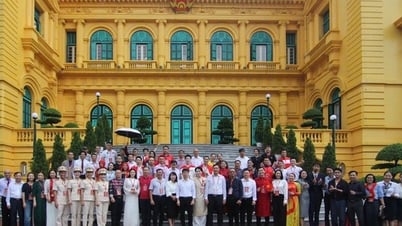



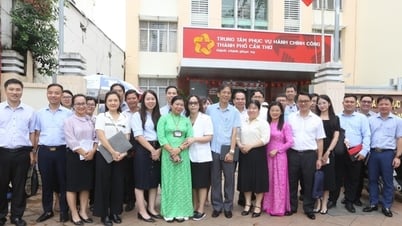

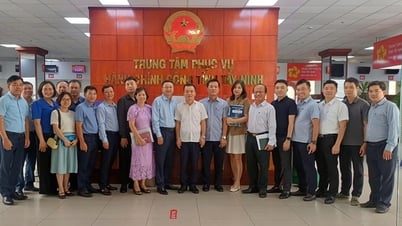











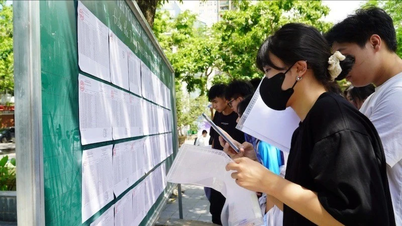














Comment (0)